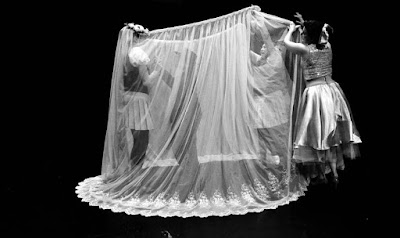In its attempt to bringing local actors with human rights activists from all over the world, Magdalenas Berlin organized a get-together with an association from the city focusing on helping women who live with HIV, the Berlin Aids Hilfe.
The Berlin Aids Hilfe has been committed to campaigning for the social acceptance of HIV-positive people, human rights, participation, inclusion and solidarity for more than 30 years now. “Metoca” is an NGO in Central America that fights for the rights and empowerment of women who live with HIV and they were active part of the festival. It is a women-specific project of the ICW, the first of its type to get funding. Some of the organizers joined an open discussion about different strategies to support women living with HIV in the framework of the II Ma(g)dalena International Festival that took place 13-17 September 2017 in Berlin. Adama Thorlie, the representative of the Berliner Aids Hilfe e.V., was also part of the conversation, moderated by Bárbara Santos, the director of the Festival.
The work of both organizations has a similar focus – to empower women who live with HIV and reduce stigma, which is very often just one of the multiple factors that can lead to discrimination and isolation. People living with HIV are more likely to be depressive, and this is something the Berliner Aids Hilfe is aware of. That is why they organize trips for migrant women with HIV who cannot afford to go on holidays and get a little bit of rest, away from their daily chores. Empowerment workshops are also a very important part of their program. Women should be able to not think about HIV the first thing in the morning, although, it is easier said than done, explained Adama. Apart from giving information about the HIV treatment and prevention, he Berliner Aids Hilfe organizes monthly meetings, yoga and Christmas events for HIV-positive women and their families.
Metoca also focuses on the way women living with HIV perceive themselves. The medication in Latin America is very strong and it makes changes in your body, said Lorena from the organization. That is why it’s so important to give back the power to these bodies that became stigmatized after the diagnosis. To women living with HIV, as to the rest of the women, their reproductive rights are on top of their agenda. They want to decide how to give birth, and if they want to give birth.
Metoca understands, among others, that HIV is the cause and effect of violence against women in many cases. For that reason, Forum Theatre is an incredible source of strategies to make a real impact, not only at a policy-making level, but also at the community base. It is a very effective way to start a dialogue, and also to create new alliances with other women, HIV-positive or not. Next year they will present a documentary showing the working process in 11 Latin American countries.











































